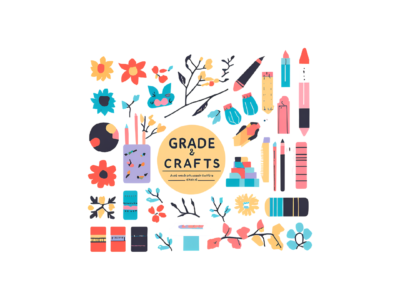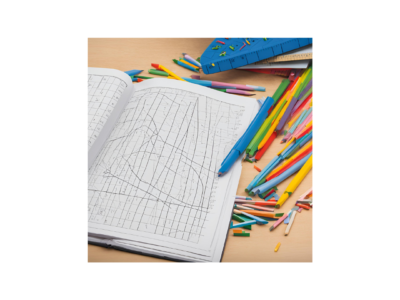Grade 8: Pre-Technical Assessment
Course Overview The Grade 8 Pre-Technical course introduces students to the foundational concepts and skills in various technical fields. The course aims to build a basic understanding of practical skills that are essential for further study in technical education and …
Overview
Course Overview
The Grade 8 Pre-Technical course introduces students to the foundational concepts and skills in various technical fields. The course aims to build a basic understanding of practical skills that are essential for further study in technical education and vocational training. Students will explore different aspects of technology, engineering, construction, and design, and gain hands-on experience in working with tools, materials, and simple machines. By the end of the course, students will be prepared to take on more advanced technical subjects and apply their skills in real-world settings.
Course Objectives:
- Introduction to Technical Education:
- Understand the importance of technical education and its role in the development of skills for various careers.
- Learn about the different branches of technology, including engineering, construction, and design.
- Basic Tools and Materials:
- Familiarize students with common tools and equipment used in technical fields, such as hammers, screwdrivers, pliers, measuring instruments, and safety gear.
- Learn about various materials, including wood, metal, plastic, and their properties and uses in construction and manufacturing.
- Safety in Technical Work:
- Emphasize the importance of safety in technical work, including proper handling of tools and materials.
- Learn about personal protective equipment (PPE) and the safety protocols required in workshops and technical environments.
- Simple Machines and Mechanisms:
- Understand the principles of simple machines, including levers, pulleys, inclined planes, wedges, screws, and gears.
- Apply the concepts of force, work, and mechanical advantage to solve practical problems.
- Basic Workshop Skills:
- Develop skills in basic workshop practices, such as measuring, cutting, shaping, and assembling materials.
- Learn how to follow instructions for creating simple projects and models.
- Basic Electrical Concepts:
- Understand basic electrical principles, such as voltage, current, and resistance.
- Explore simple circuits and the role of electrical components like batteries, resistors, switches, and light bulbs.
- Introduction to Design and Drawing:
- Learn the basics of technical drawing and design, including how to create simple diagrams and blueprints.
- Understand the importance of design in the creation of products, structures, and systems.
- Problem Solving and Innovation:
- Encourage critical thinking and problem-solving skills through practical tasks and challenges.
- Promote creativity and innovation in developing solutions to simple technical problems.
Key Topics Covered:
- Tools and Equipment:
- Overview of hand tools and power tools
- Proper use and maintenance of tools
- Measuring and marking techniques
- Materials:
- Properties of different materials (wood, metal, plastic)
- Selection of materials for various applications
- Basic material handling and care
- Safety Procedures:
- Safety in the workshop
- Use of personal protective equipment (PPE)
- Emergency procedures
- Simple Machines:
- Types of simple machines: lever, pulley, inclined plane, wedge, screw, and gear
- Applications of simple machines in everyday life
- Workshop Practices:
- Cutting, shaping, and joining materials
- Building simple models and projects
- Basic assembly and finishing techniques
- Electrical Concepts:
- Basic electrical circuits and components
- Understanding voltage, current, and resistance
- Building simple circuits
- Technical Drawing and Design:
- Drawing and interpreting basic technical drawings
- Understanding symbols used in technical diagrams
- Basic design principles for creating functional products
- Problem-Solving and Application:
- Hands-on projects that require applying technical knowledge
- Creative problem-solving tasks that challenge students to build or repair simple devices
Assessment:
- Practical Work: Hands-on tasks and projects to demonstrate the application of technical skills and concepts.
- Theory Exams: Tests to assess understanding of the principles behind tools, materials, and technical concepts.
- Assignments: Written assignments and design tasks to reinforce theoretical knowledge.
- Group Projects: Collaborative projects that encourage teamwork, problem-solving, and creative thinking.
Learning Approach:
The course emphasizes hands-on learning and practical application:
- Workshops and activities where students practice using tools and materials.
- Collaborative group work to solve real-world technical problems.
- Project-based learning, encouraging students to design and build simple devices or structures.
- Interactive lessons on the theory behind technical concepts.
By the end of the course, students will have gained practical technical skills, an understanding of basic engineering principles, and the confidence to apply these skills in future academic or vocational pursuits. This course serves as a foundation for further studies in technical education and equips students with valuable problem-solving skills.
Curriculum
- 1 Section
- 1 Lesson
- 10 Weeks
- Grade 8: Pre-Technical Assessment1






